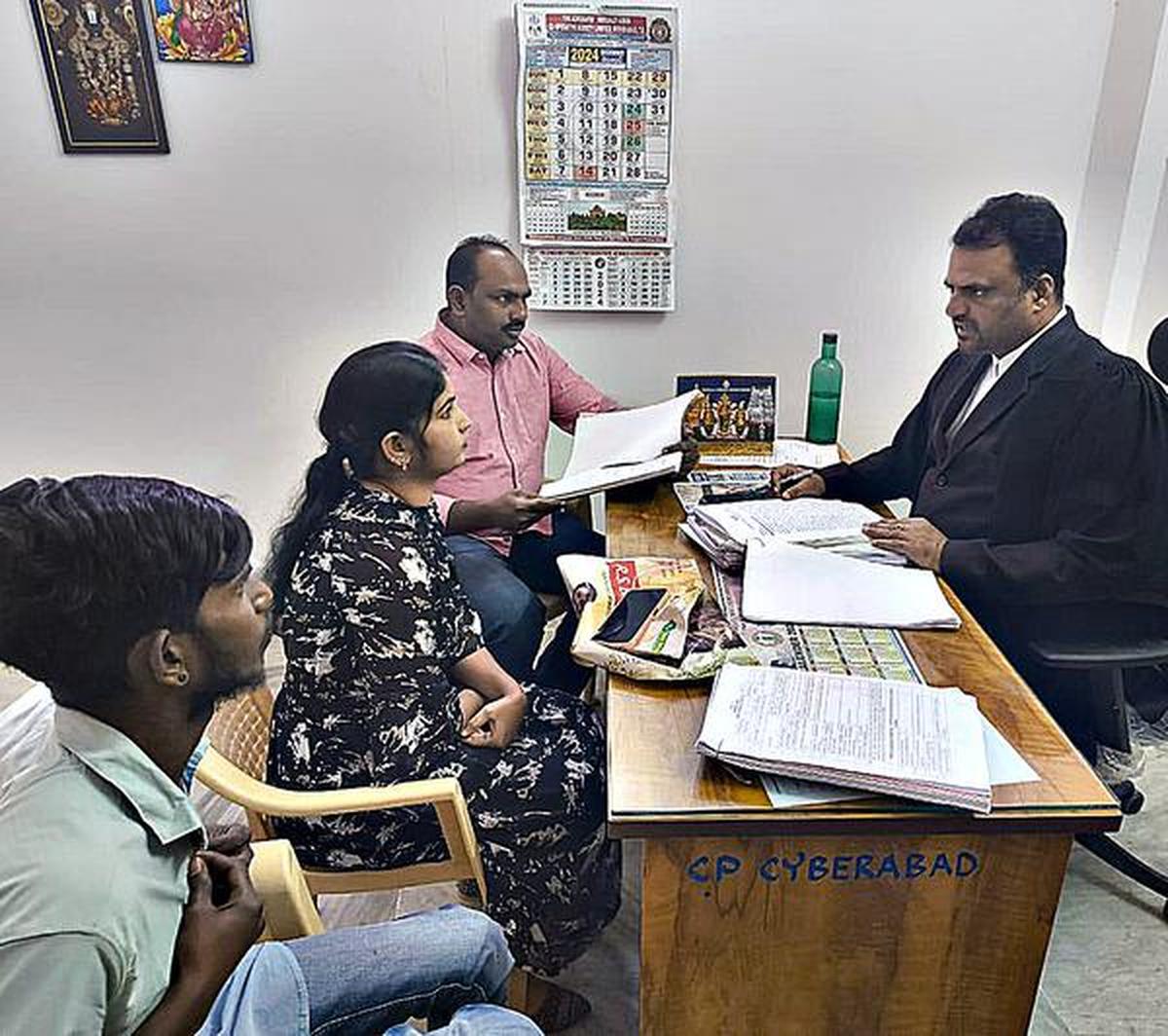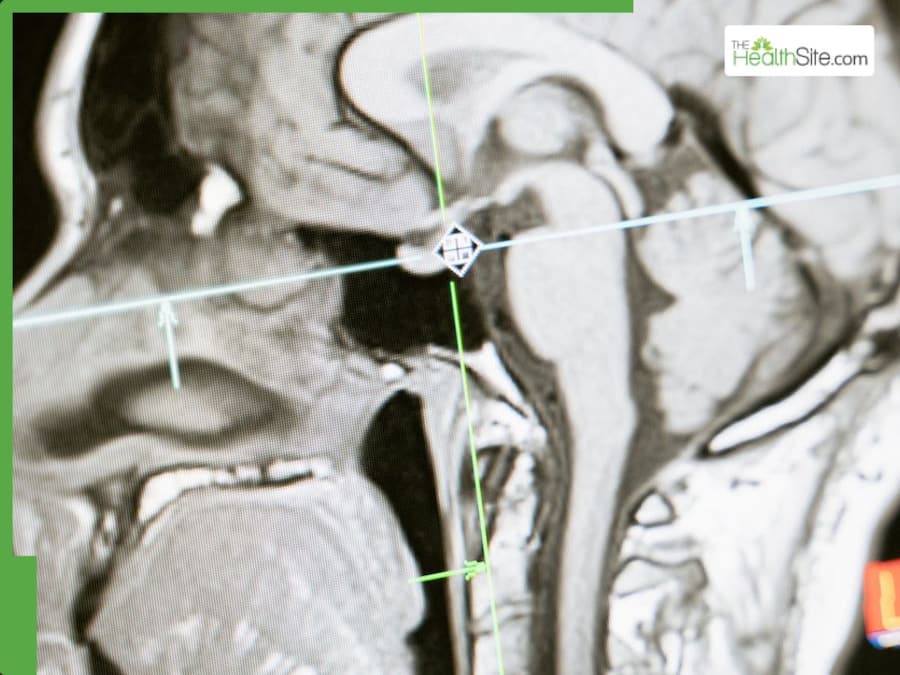The discovery was chilling — the lifeless body of a 55-year-old woman lay crumpled in a dark corner of the cellar of an old building, her head bearing multiple wounds. A blood-stained boulder sat ominously nearby, and a strand of hair clenched tightly in her fist hinted at a desperate struggle. Her dishevelled clothes raised suspicions of sexual assault.
It was June 14, 2023, when Pochampally police teams of Rachakonda commissionerate arrived at the abandoned building in Pillaipally village, about 40 kilometres from Hyderabad. Among the scattered clues, an emptied 180-ml liquor bottle seemed like just another piece of trash. Little did they know, this unassuming glass bottle would unravel the chilling identity of the murderer.
Acting on a tip-off, police apprehended Mohammed Anwar, a labourer in his mid-30s from Bihar, working at an under-construction building in the village. Under intense interrogation, Anwar confessed to the crime — violating the woman in intoxicated condition after spotting her alone in the cellar, and then silencing her with a fatal blow from a boulder.

Police prosecutor interacting with witnesses ahead of a case trial. Of the 30 convictions secured this year, 14 pertained to POCSO cases.
| Photo Credit:
Special Arrangement
While the confession offered investigators instant relief, solving the case within 48 hours, their ordeal was far from over. Securing a conviction posed a far greater challenge, as confessions to police are inadmissible in court. Determined to build an iron-clad case, the team meticulously examined every shred of evidence collected from the crime scene.
Much headway could not be made. The first breakthrough came in the form of fingerprints lifted from the seemingly inconsequential liquor bottle found near the body. Of the two chance prints recovered, one was unusable. But the other turned out to be a perfect match with Anwar’s fingerprints, collected during his arrest.
The evidence confirmed Anwar’s presence at the crime scene but fell short of conclusively proving he committed the murder, despite his confession and willingness to lead the police to the spot. Even his admission of sexually assaulting the victim wasn’t enough to eliminate doubt. The forensic doctor in his autopsy report also noted ‘recent vaginal penetration’, but this left room for Anwar to claim that while he may have violated the woman, someone else could have committed the murder, implicating him in the process.
Investigators were tantalisingly close to solving the case, yet critical gaps remained. The breakthrough came from the victim’s vaginal and cervical swabs, collected during the autopsy. Forensic experts, in their analysis, conclusively linked Anwar to the crime, as the swabs matched his DNA profile, turning suspicion into certainty.
Forensic experts employed Autosomal STR analysis — a DNA profiling technique using Short Tandem Repeat markers on autosomal chromosomes to identify individuals — to match the DNA profile of the accused with samples collected from the crime scene. This technical evidence left no room for doubt, conclusively establishing the arrested man’s involvement in the rape and murder.
In the courtroom, the First Additional District and Sessions Judge of Bhongir held that the “prosecution proved and established the guilt of the accused under Sections 376 and 302 of IPC beyond all reasonable doubt”. The judge awarded 20 years of rigorous imprisonment for rape, and life imprisonment for murder, with both sentences to run concurrently.
“This case is a classic example of how the concerted efforts of investigators, forensic experts and prosecutors ensure no criminal goes scot-free,” says Rachakonda Police Commissioner G. Sudheer Babu. He is proud of not just conviction in this case, but also securing life sentences to 49 persons in 30 cases this year alone.
Teamwork, tech and tenacity
Hailing it as a ‘remarkable feat’ in the backdrop of typically ‘low conviction rates’, the Rachakonda Police Commissioner credited the success to teamwork and consistent monitoring. A dedicated Court Monitoring Cell (CMC), led by Deputy Superintendent of Police-rank officers overseeing the trial of important cases, was constituted. Such specialised wings are now common across all police units.
Once the investigation is completed and a charge sheet is filed, the CMC scrutinises every detail of the judicial process. When the schedule of the trial is announced, the cell ensures the presence of panch and eye-witnesses, deposition of forensic doctors, and technical experts, leaving no aspect to chance.
Each case is closely tracked by two officers: a Court Duty Officer from the local police station and a Court Monitoring Officer from the CMC. This approach has led to convictions in 30 life imprisonment cases — 12 murders, two dowry deaths, one murder for gain, and a murder-cum-POCSO Act case. The remaining 14 cases of life convictions were secured in which POCSO (Protection of Children from Sexual Offences) Act was invoked.
Some prosecutors feel that ensuring punishment in POCSO cases is comparatively easier due to the stringent provisions of the special law. Unlike other crimes, POCSO shifts the burden of proof onto the accused, presuming guilt unless proven otherwise — an advantage for law enforcement in securing justice.
In the Pochampally murder case, it was up to the police and prosecution to prove Anwar’s guilt. “Even POCSO cases throw up peculiar challenges. The victims and their parents sometimes refuse to testify when the case comes up for trial as they often reach marriageable age by then,” says Commissionerate Crime Records Bureau officer Jupally Ramesh.
In some instances, parents refuse court appearances, fearing the stigma of sexual assault might tarnish their children’s future. They privately tell the police that they don’t want to attract more attention by attending court and sharing evidence.
In one such POCSO case registered in 2020 and investigated by Balapur police, the CMC noted that the trial schedule was disrupted multiple times. The trial, involving an eight-year-old victim, was repeatedly delayed as her parents stopped appearing in court four years later, worried that the case would cast a shadow on her future.
While respecting the parents’ emotions, the Commissioner was resolute in pursuing justice. A team of female officers of various ranks met with the family, reminding them that it was the headmaster of the girl’s school who had violated her. “The accused, Philip Joseph, who was eventually removed from his position, should be punished to set a precedent and ensure no other child suffers at the hands of such a predator,” they told the parents.
After several counselling sessions and persistent efforts by the officers, the parents and the young girl agreed to attend court. The assault had taken place in the afternoon of January 28, 2020, when the eight-year-old went to the school office to get drinking water. The accused headmaster lured her into his office, where he assaulted her. He even threatened to kill her if she told anyone about it.
The following day, the girl’s mother noticed injuries on her while putting on her school uniform. The kid, apparently scared to reveal the assault, did not reveal anything when asked. It was only after a medical examination confirmed the assault that the mother approached the police. “Such cases require more than prosecution and policing; they demand compassion and sensitivity,” says Sudheer Babu, reflecting on the case that led to a life sentence for the accused this year.
Vigilance at every step
In April this year, the murder of a sexagenarian, T. Ravinder, by his own son in Adibhatla, on the outskirts of Hyderabad, is another example of how the CMC played a pivotal role in helping investigators. The charge sheet was filed, evidence presented, and final arguments were under way when the CMC officer discovered a key omission by Adibhatla police, at the last minute.
Ravinder was at home when he was attacked by his 25-year-old son, T.Anurag. In the charge sheet, police mentioned that the youth, addicted to Ganja, had been harassing his parents. On April 4, he poured petrol on his father and set him afire. His mother was in the washroom and he locked the door from outside, ensuring she could not intervene. Ravinder, engulfed in flames, ran outside screaming for help, before collapsing from his injuries.
According to police records, Anurag then chased his father and struck him on the head with a boulder, killing him instantly. He walked into the Vanashtalipuram police station around 10 p.m. and surrendered before the Station House Officer (SHO). However, when preparing for trial, the investigators had overlooked one critical detail: they failed to present the SHO’s statement, in which Anurag had confessed.
By then, the trial had reached its final stages, with all evidence and documents presented in court. Since there was a possibility of the defense counsel pointing out the lacunae, the CMC advised the investigators to submit the SHO’s statement under Section 311 of the Criminal Procedure Code. The judge accepted this after informing the defense counsel, closing the gap in the prosecution’s case.
This case stands out as the only one to secure a conviction in the same year it was reported. The murder took place on April 4, and the judge delivered a life sentence on December 13.
Setting sight on delivering justice
In contrast, most other cases had been reported several years prior. The oldest of these cases involves the kidnapping and murder of car driver, Mohammed Ilyas Ahmed, a man in his early 50s, from Nizamabad. The crime, committed by a gang of four — G.Srinivas, R.Mahesh, R.Gouraiah, and G.Sridhar — was reported to Bommalaramaram police station (Yadadri Bhuvanagiri district) in December 2014.
The quartet, hailing from Karimnagar district, hired Ahmed’s car under the pretense of visiting the Vemulawada and Kondagattu temples. After reaching a deserted place on the outskirts of Kondagattu, they strangled Ahmed to death. The gang then drove for nearly 180 kilometres and dumped the body in a secluded spot in Maryala village under Bommalaramaram police station limits, and set it ablaze.
Since the body was burned beyond recognition, the victim’s identity could not be ascertained initially.
An autopsy was conducted. The femur bone and viscera were sent to forensic experts for analysis. Through internal communication, police discovered that a man of similar age had gone missing from Nizamabad district. After examining the charred remains, Ahmed’s family identified the body, confirming it as their missing relative.
Nearly a month later, investigators intercepted a car and detained four persons who were unable to provide valid vehicle documents or answer basic questions. During interrogation, the quartet confessed to kidnapping and murdering Ahmed before stealing his car. Following proper procedure, all scientific evidence was collected, and the charge sheet was filed. The accused were later granted conditional bail and released from prison.
After several court adjournments, the gang was excused from attending hearings, with assurances they would appear when the trial began. However, it took nearly three years for the trial to commence, and during that time, the accused stopped attending court altogether, disrupting the trial schedule. Non-bailable warrants were issued for their arrest, but when police went to their listed addresses, the accused were nowhere to be found, suggesting that they were trying to evade the trial.
Senior officers formed special teams to track down and produce the first and fourth accused, Srinivas and Sridhar, respectively, before the court. Since the other two suspects remained untraceable, police split the case trial. The separate trial for Srinivas and Sridhar was completed, and both were sentenced to life imprisonment for their invovlement in the murder.
“We hope to secure presence of other two persons. Their punishment too is almost certain. Rachakonda police will strive to replicate this success of securing convictions in all cases,” says Sudheer Babu exuding confidence.
Published – December 27, 2024 08:57 am IST







